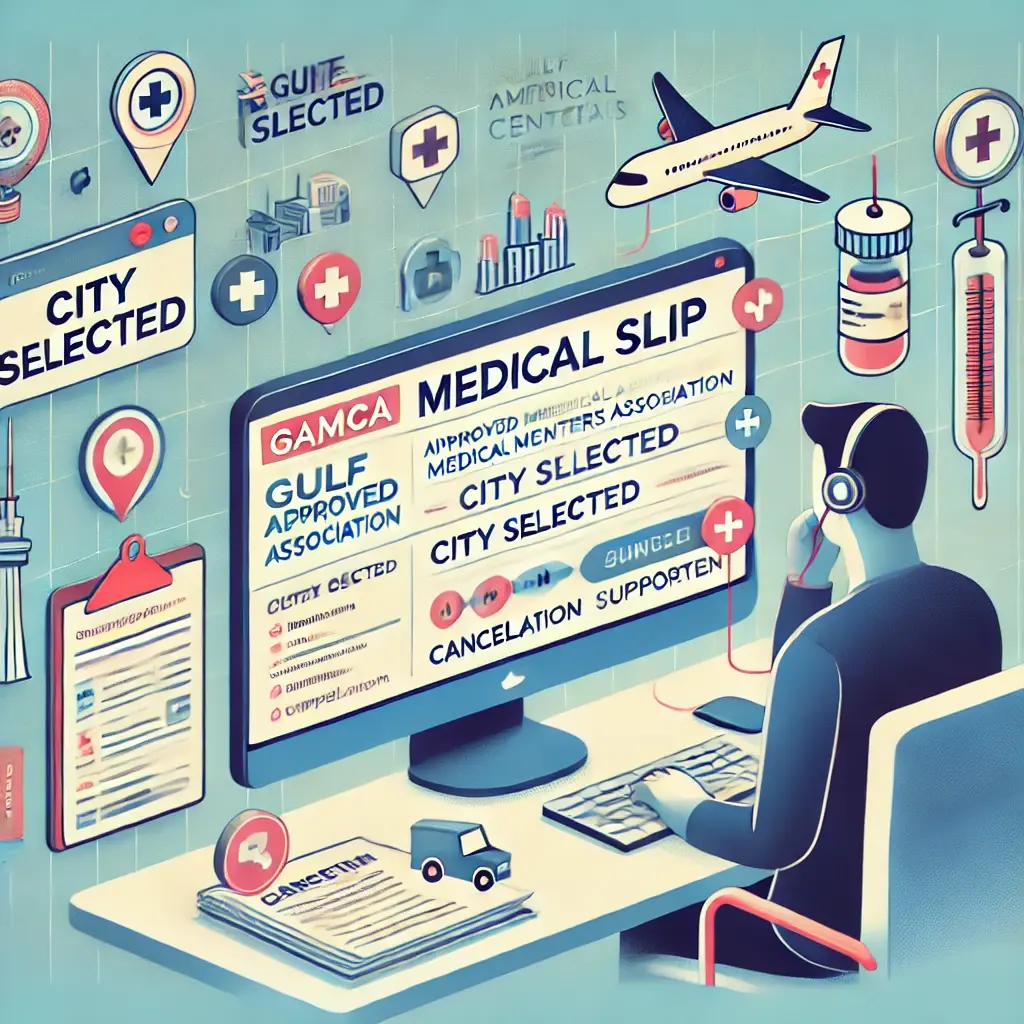
Gamca Medical Tests For Children And Pregnant Women
Individuals who plan to work or live in GCC countries must undergo AMCA (Gulf Approved Medical Centers Association) medical checks. However, there are special standards and exemptions for youngsters and pregnant women. Here is a breakdown of the GAMCA medical test requirements and exemptions for each group.
GAMCA Medical Test Requirements for Children
Children of expatriates travelling to GCC countries with their families are typically exempt from the complete medical testing requirements imposed by GAMCA. Because the goal of the medical test is to guarantee that individuals entering the country are free of communicable diseases and other serious health hazards, children under a particular age are normally not subject to the same medical examinations as adults. Here are some crucial issues to consider.
- Age Criteria: In most cases, children under the age of 12 are exempt from GAMCA medical tests. This exemption applies because young children are generally not considered to pose a significant health risk to the population.
- Limited Testing Requirements: Although children may be exempt from the complete GAMCA test, some countries may still require basic health checks or documentation, such as vaccination records, to confirm the child’s health status.
- Vaccination Records: Parents are advised to carry vaccination records for children. Some GCC countries may require specific vaccinations, such as those for polio, measles, or other childhood illnesses, depending on their health regulations.
- Medical History Documentation: Parents may also be asked to provide a basic medical history for their children, particularly if the child has pre-existing health concerns or requires specific medical care. However, no intrusive testing, such as blood work or X-rays, is usually required for youngsters.
GAMCA Medical Test Requirements for Pregnant Women
Because of the potential health hazards associated with certain medical examinations, pregnant women must go through a different procedure. Here's how the GAMCA medical test is tailored to pregnant applicants:
- Exemptions from X-rays: Exemptions from X-rays: The chest X-ray, a routine part of the GAMCA medical test to check for tuberculosis, is typically exempted for pregnant women due to the potential risks of radiation exposure to the fetus. Pregnant applicants should inform the medical centre staff about their pregnancy to avoid this part of the test.
- Alternative Documentation: Some countries may accept alternative documentation or certificates from the applicant’s home country to confirm the absence of TB or other infectious diseases. In these cases, a note from a qualified medical professional attesting to the applicant’s health may be submitted in place of the X-ray.
- Blood Tests and Other Non-Invasive Examinations: Pregnant women may still be required to complete non-invasive parts of the GAMCA medical test, such as blood work, to check for any infections or conditions that could pose a public health risk. These tests are generally considered safe for both the mother and the fetus.
- Medical Waivers and Temporary Exemptions: Depending on the stage of pregnancy and health condition, pregnant women may be eligible for temporary waivers or medical exemptions. Some GCC countries may allow women to enter without completing the full test and then finalize the requirements post-delivery. This flexibility depends on the country’s policies and should be confirmed with the GAMCA-approved centre.
- Notification and Communication with Employers: Pregnant women are advised to communicate with their employers regarding any medical exemptions they receive. This ensures that employers and the destination country’s immigration officials are informed of any modified requirements and can help prevent misunderstandings or delays in visa processing.
Important Points to Keep in Mind
- Documentation Requirements: Both children and pregnant women may need to provide additional documentation or certifications from healthcare providers in their home countries to confirm certain health standards.
- Communication with GAMCA Centers: It’s essential to inform the GAMCA centre about pregnancy or minor status at the beginning of the medical assessment to avoid unnecessary procedures or miscommunications.
- Employer Involvement: Employers are typically involved in the visa process and may help in coordinating exemptions or special requirements with GAMCA or relevant authorities in the destination country.
Conclusion
The GAMCA medical test for children and pregnant women addresses unique health and safety concerns, including exemptions or adjustments to normal standards. Children under the age of 12 are normally excused from full testing, however basic health paperwork may still be necessary. Pregnant women are excluded from certain examinations, such as chest X-rays, to protect the fetus's health; nevertheless, they may still be required to perform other noninvasive procedures. Effective communication with GAMCA centres, employers, and relevant authorities is critical to ensuring a seamless medical screening procedure for these populations.
